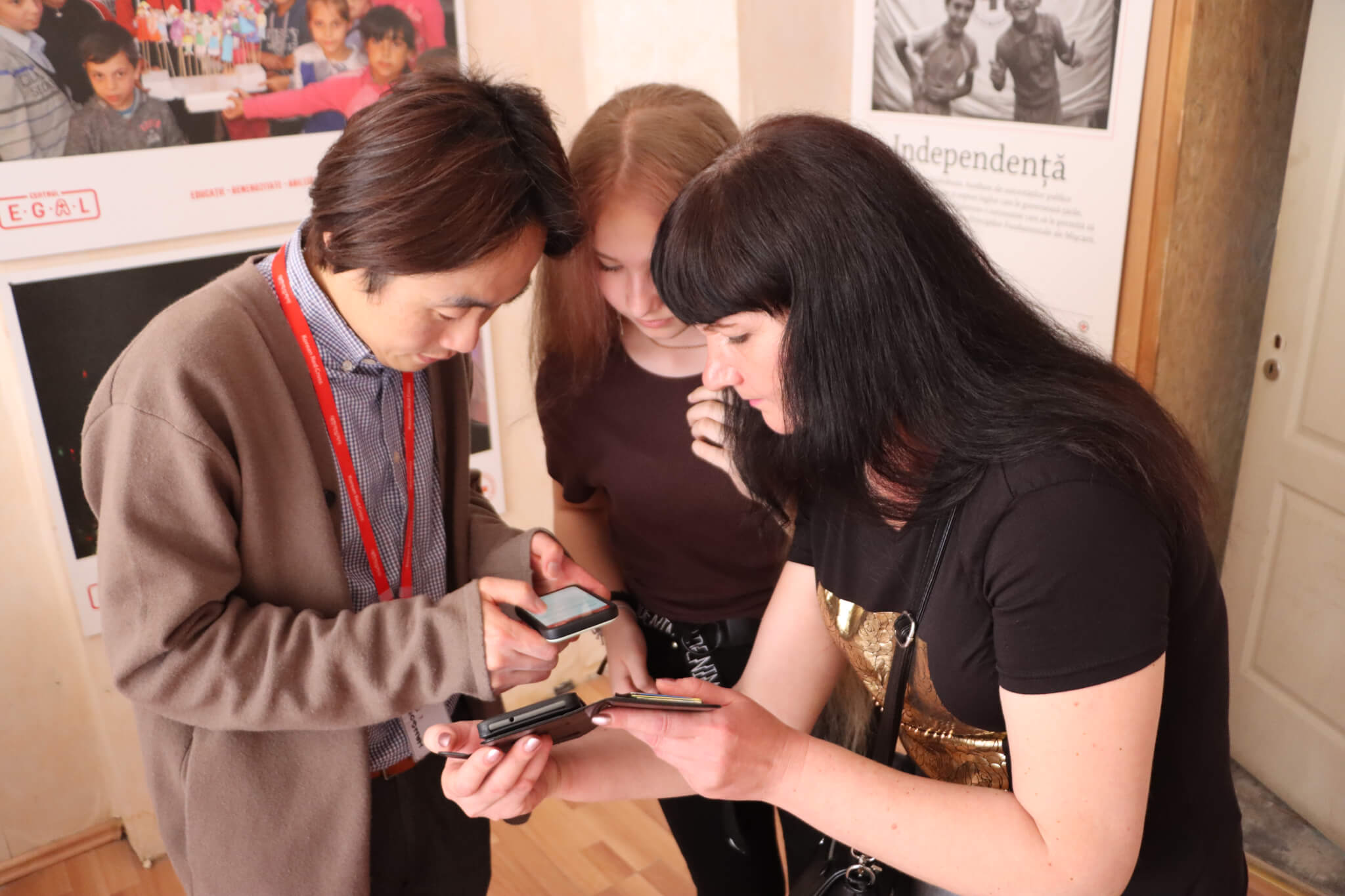What if the right systems were already in place before disaster strikes? That’s the goal of cash preparedness: making Cash and Voucher Assistance (قيمة القرض النقدي) a core part of humanitarian action at every stage of a crisis. The International Federation of Red Cross and Red Crescent Societies (الاتحاد الدولي لجمعيات الصليب الأحمر والهلال الأحمر)’ CVA Preparedness Programme supports National Societies across Europe and Central Asia with gearing up to be cash-ready, encouraging proactive assistance by embedding CVA systems and capacities before emergencies strike. With strong collaboration from data expert partners such as the Netherlands Red Cross’ data and digital team, 510, the programme places data management at the heart of preparedness. The result? Better services, smarter use of data, and quicker, coordinated emergency responses. The CVA Preparedness programme and 510’s technical contributions are funded by the IFRC’s emergency appeal for Ukraine and impacted countries, as well as the Ministry of Foreign Affairs of the Netherlands, and several National Societies.
Why Preparedness Matters
“Preparedness ensures that National Societies can deliver CVA programmes in a timely, accountable, and scalable way. It allows them to use CVA whenever it’s feasible, because systems are already in place to serve affected communities according to their preferences.”
Marcin Podlesny, Cash Preparedness Delegate at IFRC

Cash preparedness is a strategic investment for 21 participating National Societies in Europe and Central Asia. Through a structured approach, they evaluate leadership commitment, processes, systems, tools, human and financial resources, and other key components of CVA operations. With most participating National Societies viewing the use of data as a priority in increasing their cash preparedness, IFRC and 510 have placed data management at the centre of their support: from conducting digital transformation assessments to assistance with selecting and setting up suitable tools, data visualisation, trainings in local languages, and guidance combined with tool maintenance for long-term sustainability.
“CVA data management is one of the key components that increases the ability of National Societies to deliver quality CVA. It is not just about tech tools – it’s about constructing a full loop of data, from collection and analysis to informed decision-making, strengthening community engagement along the way.”
Marcin Podlesny, Cash Preparedness Delegate at IFRC
Country Spotlights: CVA Data Management in Action
National Societies with varying CVA levels and capacities can benefit from joining the cash preparedness programme. A regional leader in this field, the Red Crescent Society of Kyrgyzstan already has strong partnerships with Financial Service Providers (FSPs), and an experienced CVA team. To further refine its processes, the National Society attended a training for data visualisation using Power BI, conducted by the 510 team. Thanks to the Red Crescent Society of Kyrgyzstan’s cash preparedness efforts, powered by data, the National Society was able to quickly distribute over 630,000 CHF to 12,516 people affected by mudflows in 2024.
“Investing in information management tools has significantly strengthened our operational efficiency by enabling faster data analysis, more accurate targeting, and improved coordination across teams. This has allowed us to deliver CVA in a more timely, transparent, and accountable way.”
Beikut Rysbek uulu, CVA Coordinator at the Red Crescent Society of Kyrgyzstan

On the other hand, the Lithuanian Red Cross and the Romanian Red Cross started their cash preparedness journey more recently – but have shown rapid progress. While the Lithuanian Red Cross has begun piloting CVA processes, the Romanian Red Cross is currently working to identify an FSP – a crucial step towards administering quality CVA.
Preparedness is not a one-time effort but an ongoing process that requires continuous investment in systems, staff training, and internal procedures. Building CVA capacity across all levels of our National Society has been essential to ensure readiness for scalable and principled humanitarian response.
Razvan Cateriniuc, CVA Coordinator at the Romanian Red Cross

Tailored, Contextual, and Collaborative
No two National Societies are the same, and that’s the strength of the CVA Preparedness programme. Whether a National Society is just beginning its cash journey or refining mature systems, support is co-designed and tailored to each National Society’s own priorities, building local ownership. Regular knowledge exchange opportunities to learn from other National Societies’ experiences ensure alignment with regional standards. This way, a network is established of National Societies that are not only cash-ready, but also ready to support each other.
What’s Next: Scaling Preparedness
As the community of National Societies practicing cash preparedness grows, it offers a space for shared learning and innovation, signalling a shift from one-off emergency response to long-term institutional readiness. By embedding CVA into disaster management systems, National Societies are laying the foundation for cost-efficient, timely and flexible humanitarian action focused on people’s choice and dignity – and data and digital tools are a crucial element on this journey.
If you are wondering: Where does my National Society stand on CVA readiness? How can we integrate data from the start? And where do we go for technical support or peer advice? You’re not alone. IFRC, along with partners like 510, are here to support your journey at all steps towards cash readiness. Let’s be prepared together!
تنصل: يرجى ملاحظة أن النسخ العربية والفرنسية والإسبانية من هذه المقالة تم إنشاؤها تلقائيًا باستخدام الذكاء الاصطناعي. لا يمكننا ضمان الدقة الكاملة لهذه النسخ.
We want to hear from you!
Are you interested in pursuing cash preparedness with your National Society? Please reach out to
منسق الخدمة، المساعدة النقدية والقسائم: إينيز جورتزاك igortzak@redcross.nl
Cash Preparedness Delegate (IFRC): Marcin Podlesny marcin.podlesny@ifrc.org